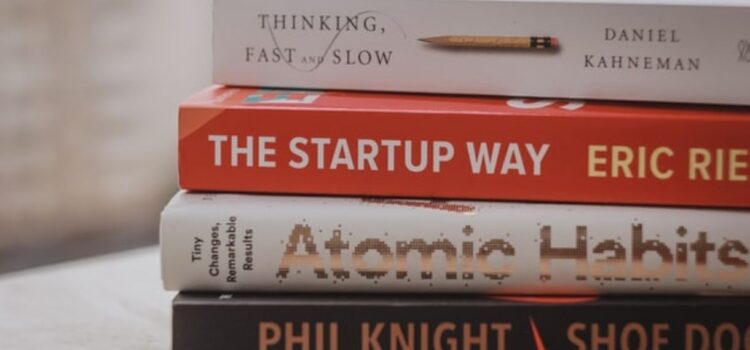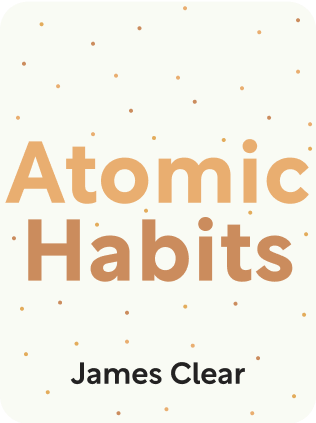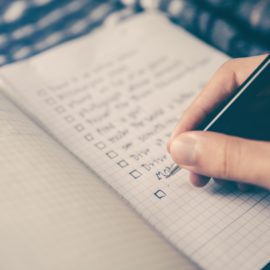

This article is an excerpt from the Shortform book guide to "Atomic Habits" by James Clear. Shortform has the world's best summaries and analyses of books you should be reading.
Like this article? Sign up for a free trial here .
Do you need Atomic Habits book club questions? What are some of the key concepts and ideas to discuss?
Atomic Habits is a ground-breaking book by James Clear which lays out a framework for establishing new habits using the principle of the compound effect. The following Atomic Habits book club questions will help you reinforce your understanding of the key concepts of habit formation.
Keep reading for Atomic Habits book club questions.
Atomic Habits Book Club Questions
In Atomic Habits, James Clear breaks down the psychology of behaviors, describing how actions become habits, why some habits stick and some don’t, and how to reframe your life to create new habits and maintain them over time.
The following Atomic Habits book club questions will help you understand the key concepts of habit formation by reflecting on your own habits.
Question 1: Check Your Systems
What are one or two habits you have tried to develop or break recently? Were you successful?
Were the changes you made system-based or goal-oriented? In what way?
What is a new habit you’d like to start?
What small (1%) improvements in behavior can you make that will compound to allow you to reach the desired result?
Question 2: Timing Is Everything
What is one daily new habit you wish to form?
When would this new habit best fit into your day?
To practice implementation intention, what is the specific formula you can create to cue this new behavior (“When X occurs, I will do Y” or “At X time, I will do Y”)?
What are one to three current behaviors that relate to this new behavior? What are the rewards of these behaviors?
To practice habit stacking, how can one of these rewards become a cue for your new behavior?
Question 3: Shaping Your Visual Environment
Using the new daily habit from the previous exercise, what is a visual object that relates to this habit?
How can you use this object to create a visual cue for the habit?
Now, think of a habit you wish to break?
What is the visual cue that triggers that behavior?
What can you do to make that cue invisible?
Question 4: Does Your Community Support Your Identity?
What is a bad habit you currently have that was influenced by your social group?
Are you able to stop this habit without losing your social network? If yes, how? If not, why?
What other social circle might be more suitable to help you stop this bad habit?
Question 5: Mind Over Matter
What is one habit you’d like to do daily? What is a different, current habit you enjoy doing?
How can these behaviors be bundled for success? What is your formula?
Take one item from your daily to-do list that you “have” to do and rewrite it as what you “get” to do.
How does this change in perspective change your feelings about the action or behavior?

———End of Preview———
Like what you just read? Read the rest of the world's best book summary and analysis of James Clear's "Atomic Habits" at Shortform .
Here's what you'll find in our full Atomic Habits summary :
- The 4 Stages of Habit Formation you can use to transform your life
- How more than half of your daily actions are automatic
- Why some habits stick and why others won't






